The theme for the lectures of the season 2019-20 of the Beaurepaire-Beaconsfield Historical Society
will be "Leaders and Pioneers"
Everyone welcome.
Free for members; $2 for non-members
Become a member for $5 per year
Information: Contact us
===========================================================
Some of Beaconsfield's Old Farm Houses
- Speaker: Pauline Faguy-Girard
- When: Thursday, September 19, 2019, 19:30 to 21:00
- Where: Centennial Hall,
- 288 Beaconsfield Blvd, Beaconsfield, H9W 4A4
Lecture in English, followed by a bilingual question period.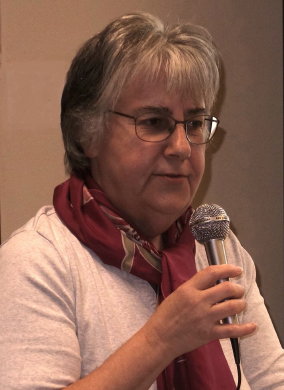
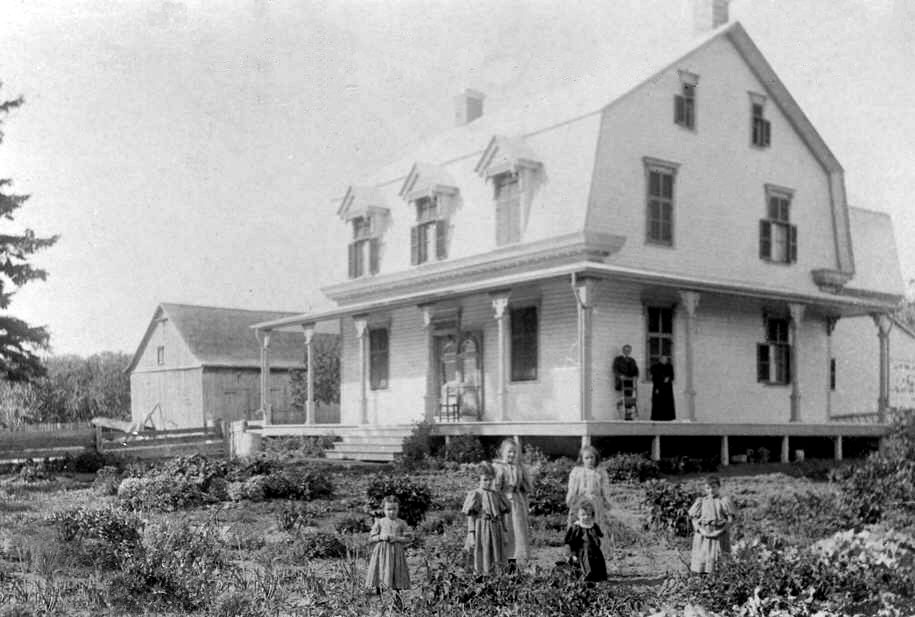 Pauline Faguy-Girard introduces us to some of the old farm houses of Beaconsfield which are still standing. Some are almost identical to their original construction; others have been modified through time to suit the needs of the different owners. We will discover the buildings and some of the people who lived in these houses.
Pauline Faguy-Girard introduces us to some of the old farm houses of Beaconsfield which are still standing. Some are almost identical to their original construction; others have been modified through time to suit the needs of the different owners. We will discover the buildings and some of the people who lived in these houses.
Pauline Faguy-Girard is interested in history and more specifically to Beaconsfield’s history since 2004 when she joined the historical society. Through the years, she has been secretary, treasurer and, since 2018, President of our historical society.
================================================
THE LAKE DISTRICT, a Jewel in the British Crown
- Speaker: Hélène Jasmin
- When: Thursday, May 16, 2019, 7:30 p.m. to 9 p.m.
- Where: Centennial Hall,
- 288 boul. Beaconsfield, Beaconsfield, H9W 4A4
Lecture in English, followed by a bilingual question period
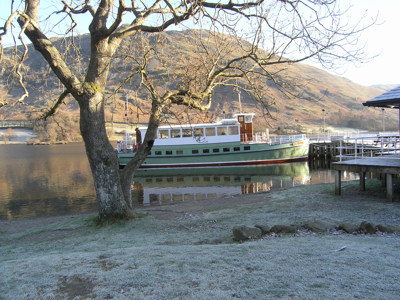 Join us on our travels through fabulous natural sites and recall tales and stories of the magnificent Lake District in North-West Britain.
Join us on our travels through fabulous natural sites and recall tales and stories of the magnificent Lake District in North-West Britain.
This area counts 19 lakes and about 200 summits and valleys. So many things to catch our eyes in Lake District, so many pages of history: intriguing stone alignments associated with Druid gatherings, churches built in the 12th century, unique landscapes and wilderness camping, and walking routes still very popular today.
This beautiful region, which enchanted author and illustrator Beatrix Potter, poet William Wordsworth, artist and designer John Ruskin, and even Hercule Poirot, main character of Agatha Christie, traveling to Keswick to solve a case, dazzles us again and again.
Hélène Jasmin, author and speaker, was educated at UQAM in Sociology; at École de radio-télévision Pierre Dufault in Montréal; and Violin private class with Master Eugène Bastien, member of MSO.
Her professional experience includes: freelance journalist for The Canadian Composer, The Medical Journal…; freelance radio program host, Radio-Canada FM, Montréal; assistant curator for the exhibits:
Ima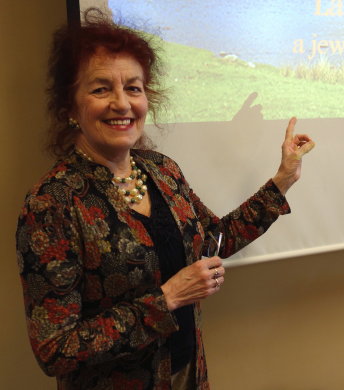 ges d’hier -- Saint-Laurent a 100 ans;
ges d’hier -- Saint-Laurent a 100 ans;
Génie en vol -- les 50 ans de Canadair-Bombardier (1994);
L’instinct du théâtre (60th anniversary of Les Compagnons), with Lorraine Pintal, director of TNM (1997).
She published:
Topics: THEATER
Les Compagnons de saint Laurent – une petite histoire (éditions Leméac, 1986)
Père Émile Legault, homme de foi et de parole (Lidec éditeur, 2000)
Topics: ART & ENVIRONMENT
Frédéric Back – La capacité d’enchanter (Lidec éditeur, 2015)
Elsie Reford, la grande dame des jardins de Métis (Lidec, 2015)
Topics: ART, GARDENING & HISTORY
A Journey with Elsie – Book of Days (La Belle Amérique publisher, 2018)
================================================
LA VILLEGGIATURA
- Speaker: Michel Belisle
- When: Thursday April 18, 2019, 7:30 p.m. to 9 p.m.
- Where: Centennial Hall,
- 288 Beaconsfield Blvd, Beaconsfield, H9W 4A4
Lecture in English followed by a bilingual question period.
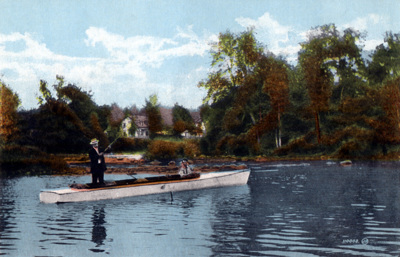 The great resorts locations of the province of Quebec became very popular in the mid 19th century with the development of railways. Wealthy businessmen and industrialists who were living in the Montreal Golden Square Mile began to stay in the country during summertime. This brought a social change for a new way of life.
The great resorts locations of the province of Quebec became very popular in the mid 19th century with the development of railways. Wealthy businessmen and industrialists who were living in the Montreal Golden Square Mile began to stay in the country during summertime. This brought a social change for a new way of life.
They hired architects to build luxurious mansions with cozy interiors where they would escape from the city and reconnect with outdoor activities and fresh air, keeping on entertainment with garden parties and balls on the lawns.
No need to go as far as Murray Bay or Cacouna. This was the beginning of vacation and holidays spent in the West Island of Montreal. In the 1880’s, new developments outside the city of Montreal became favourite places for la villeggiatura : Dorval, Senneville, Beaconsfield, Baie d’Urfé, Dorion, Hudson and Ste Anne de Bellevue.
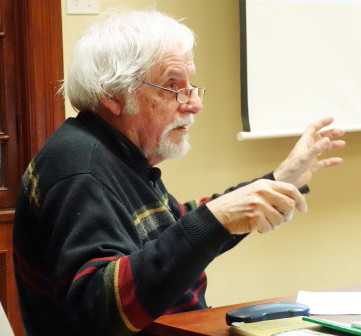 Michel Bélisle, author and lecturer, was born in Montréal. He studied Anthropology - Ethnology at Université de Montréal, and Design & Environment at UQAM. He worked as assistant-curator at McCord Museum, curator at Musée régional de Vaudreuil-Soulanges, curator at Trestler House in Vaudreuil-Dorion. He was curator for Special Exhibitions:
Michel Bélisle, author and lecturer, was born in Montréal. He studied Anthropology - Ethnology at Université de Montréal, and Design & Environment at UQAM. He worked as assistant-curator at McCord Museum, curator at Musée régional de Vaudreuil-Soulanges, curator at Trestler House in Vaudreuil-Dorion. He was curator for Special Exhibitions:
2007-2008 Vaudreuil-Dorion Public Library “Words and Images from our people”;
2004-2005 Trestler House, Historical Interpretation, in collaboration with artist and environmentalist Frederic Back
1999Trestler House, “A certain way of life”
He wrote several books and brochures:
« Elle s’appellera Kirkland – It will be called Kirkland » 2011;
« De l’île aux Tourtes à Vaudreuil-Dorion » 2007;
« À la pointe claire » 2005;
« La maison Génus au coeur de la Baie de Vaudreuil » 2004;
« Sainte-Anne-de-Bellevue, 300 ans de présence » 2003;
« Sainte-Anne-de-Bellevue Canal: the doorway to the Ottawa Valley » 2003
« La chasse à l'appelant des rives du Suroît au pays du Survenant » 1998;
« La maison des Trestler » 1998;
« La grosse île à l'ouest, Visages de l'île Perrot » 1996;
Best kept secret MTL West Island (West Island Heritage bicycle trail)
Brochure on Pointe-Claire Church
Touristic animation:
Guided tours by bus for Brébeuf College Cultural Association
Guided tours at Senneville Fort
Lecturer for different audiences: public libraries, historical societies...
===============================================
Explosions à LaSalle
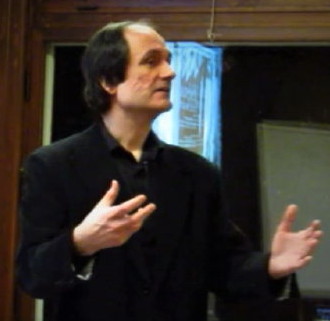 Speaker: Denis Gravel
Speaker: Denis Gravel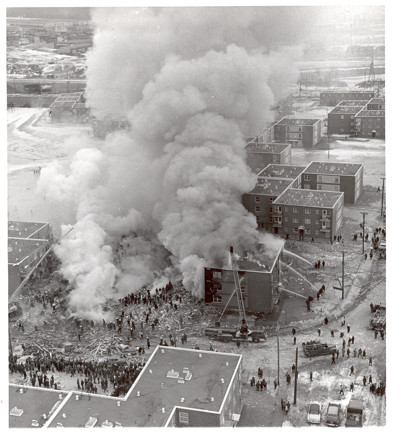
- When: Thursday, March 21, 2019, 7:30 p.m. to 9 p.m.
- Where: Centennial Hall,
- 288 Beaconsfield Blvd, Beaconsfield, H9W 4A4
Lecture in French, followed by a bilingual question period
Denis Gravel will describe the explosions in LaSalle in 1956, 1965 and 1966 (Monsanto): causes, consequences, context of the time, etc. and more specifically the explosion of March 1, 1965 which had caused 28 deaths due to a natural gas leak.
Denis Gravel is an historian. As writer or co-author, he has been involved in the research and writing of about forty books or research reports. His specialty is the history of the municipalities whether they are rural or urban. Architectural heritage and Quebec society complement his main areas of interest.
===============================================
Model Farmer:
Robert Reford and the Origins of Macdonald College in Ste-Anne-de-Bellevue
- Speaker: Alexander Reford
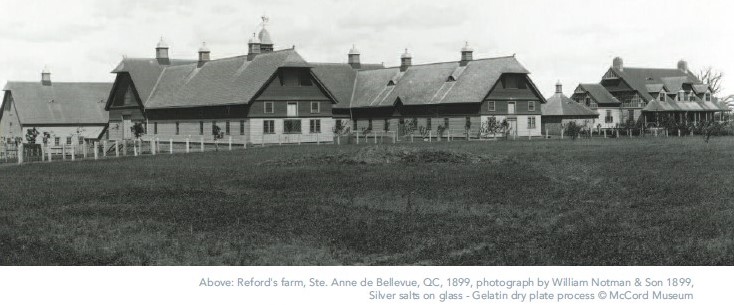
- When: Thursday 21 Feburary 2019, 7:30 p.m. to 9:00 p.m.
- Where: Centennial Hall,
- 288 boul. Beaconsfield, Beaconsfield, H9W 4A4
Lecture in English followed by a bilingual question period
The Reford family’s association with the Beaurepaire or Amable-Curot house at Thompson’s Point is known to members of the Société Historique Beaurepaire-Beaconsfield Historical Society. Less well-known is the role of Robert Reford in creating a model farm in nearby Ste-Anne-de-Bellevue, the basis of the present-day Macdonald Campus of McGill University.
Robert Reford was no farmer. But he was a prosperous Montreal entrepreneur. He was also the country’s leading exporter of live cattle to the United Kingdom. Beginning in 1891, he began to develop a model farm on the Crévier property he purchased north of Ste-Anne-de-Bellevue. He described the impressive complex of barns and outbuildings he built as “the best in Canada if not in America”. Journalists of the time agreed. The farm was also a showcase for a herd of prize-winning Ayrshire dairy cattle imported from Scotland, assembled by one of the best stockmen in the country. Thinking the property ideally suited to become one of the Dominion’s experimental farms, he convinced tobacco magnate Sir William Macdonald to make the farm a key component of his zealous efforts to promote modern agriculture and rural education.
These few acres help illuminate a time and a period. Sifting through family archives and agricultural records, Alexander Reford has assembled the story of the trials and tribulations of his ancestor’s efforts to create one continent’s leading model farms.
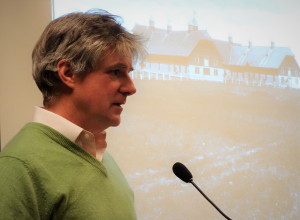
- Des jardins oubliés 1860-1960,
- Guidebook to the Reford Gardens,
- Au rythme du train 1859-1970,
- Elsie’s Paradise – Reford Gardens,
- Treasures of Reford Gardens - Elsie Reford’s Floral Legacy,
- The Metis Lighthouse.
Recently, Mr. Reford produced the exhibition War Flowers / Fleurs d'armes, on display at the Château Ramezay - Historic Site and Museum of Montréal in Old Montréal from October 2018 to March, 2019.
===============================================
The Compass, despite the Aspergillum:
Introduction to the History of Freemasonry
- Speaker: Jacques G. Ruelland, Ph.D.
- When: Thursday, January 17, 2019, 7:30 p.m. to 9 p.m.
- Where: Centennial Hall,
- 288 Beaconsfield Blvd, Beaconsfield, H9W 4A4
Lecture in English, followed by a bilingual question period
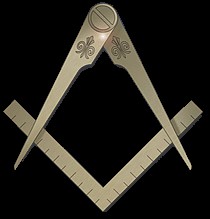
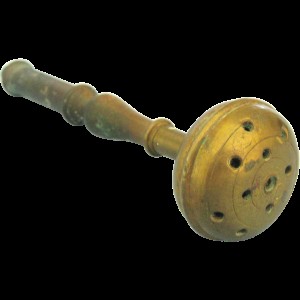 The spirit of the 18th-Century Enlightenment joined the first settlers from Europe to populate New France. Bearing this spirit, Freemasonry, organized as a Grand Lodge in London as soon as 1717 and introduced in France around 1725, settles quickly in North America. But here, it will immediately have to fight for the freedom of thought, facing an intolerant Catholic Church. The speaker will describe this journey and answer the questions that haunt everyone and that nobody dares to ask.
The spirit of the 18th-Century Enlightenment joined the first settlers from Europe to populate New France. Bearing this spirit, Freemasonry, organized as a Grand Lodge in London as soon as 1717 and introduced in France around 1725, settles quickly in North America. But here, it will immediately have to fight for the freedom of thought, facing an intolerant Catholic Church. The speaker will describe this journey and answer the questions that haunt everyone and that nobody dares to ask.
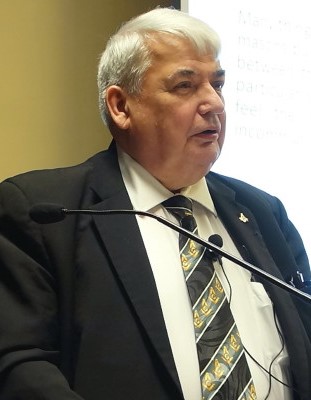
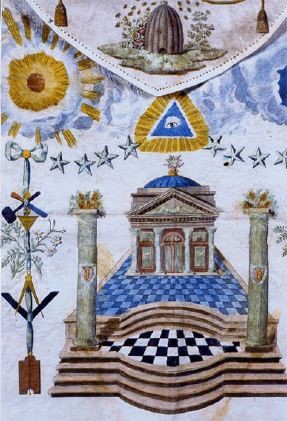
===============================================
The Boer War 1899-1902
- Speaker: James (Jim) Vanstone, M.A., Ph.D.
- When: Thursday, November 15, 2018, 7:30 p.m. to 9 p.m.
- Where: Centennial Hall,
- 288 Beaconsfield Blvd, Beaconsfield, H9W 4A4
- Lecture in English, followed by a bilingual question period
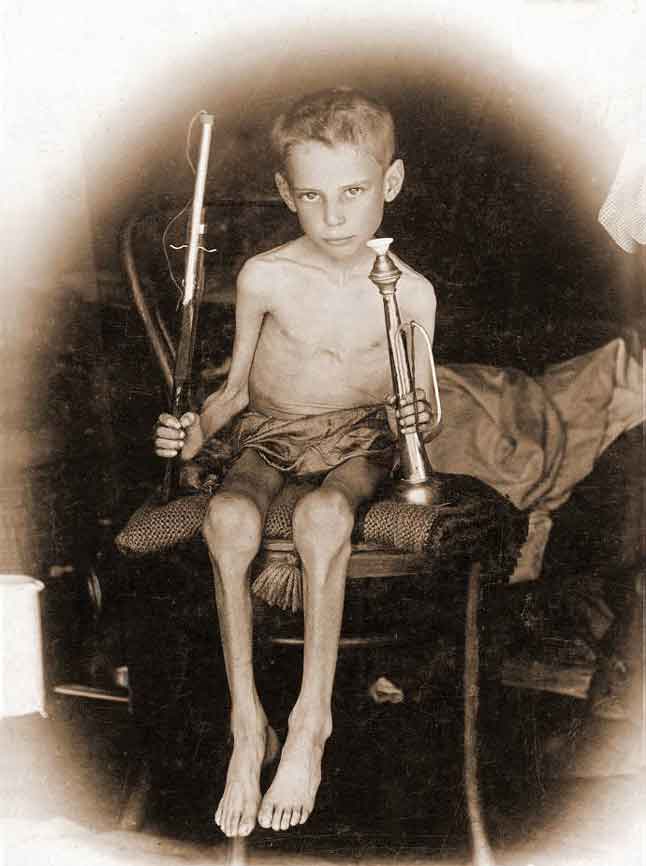 In 1899 the South African Boer War begins between the British Empire and the Boers of the Transvaal and Orange Free State. The Boers, also known as Afrikaners, were the descendants of the original Dutch settlers of southern Africa. Britain took possession of the Dutch Cape colony in 1806 during the Napoleonic wars, sparking resistance from the independence-minded Boers, who resented the Anglicization of South Africa and Britain’s anti-slavery policies. In 1833, the Boers began an exodus into African tribal territory, where they founded the republics of the Transvaal and the Orange Free State. The two new republics lived peaceably with their British neighbours until 1867, when the discovery of diamonds and gold in the region made conflict between the Boer states and Britain inevitable. Minor fighting with Britain began for the second time in the 1890s, and in October 1899 full-scale war ensued. By mid-June 1900, British forces had captured most major Boer cities and formally annexed their territories, but the Boers launched a guerrilla war that frustrated the British occupiers. Beginning in 1901, the British began a strategy of systematically searching out and destroying these guerrilla units, while herding the families of the Boer soldiers into concentration camps. By 1902, the British had crushed the Boer resistance, and on May 31 of that year the Peace of Vereeniging was signed, ending hostilities. The treaty recognized the British military administration over Transvaal and the Orange Free State and authorized a general amnesty for Boer forces. In 1910, the autonomous Union of South Africa was established by the British. It included Transvaal, the Orange Free State, the Cape of Good Hope, and Natal as provinces.
In 1899 the South African Boer War begins between the British Empire and the Boers of the Transvaal and Orange Free State. The Boers, also known as Afrikaners, were the descendants of the original Dutch settlers of southern Africa. Britain took possession of the Dutch Cape colony in 1806 during the Napoleonic wars, sparking resistance from the independence-minded Boers, who resented the Anglicization of South Africa and Britain’s anti-slavery policies. In 1833, the Boers began an exodus into African tribal territory, where they founded the republics of the Transvaal and the Orange Free State. The two new republics lived peaceably with their British neighbours until 1867, when the discovery of diamonds and gold in the region made conflict between the Boer states and Britain inevitable. Minor fighting with Britain began for the second time in the 1890s, and in October 1899 full-scale war ensued. By mid-June 1900, British forces had captured most major Boer cities and formally annexed their territories, but the Boers launched a guerrilla war that frustrated the British occupiers. Beginning in 1901, the British began a strategy of systematically searching out and destroying these guerrilla units, while herding the families of the Boer soldiers into concentration camps. By 1902, the British had crushed the Boer resistance, and on May 31 of that year the Peace of Vereeniging was signed, ending hostilities. The treaty recognized the British military administration over Transvaal and the Orange Free State and authorized a general amnesty for Boer forces. In 1910, the autonomous Union of South Africa was established by the British. It included Transvaal, the Orange Free State, the Cape of Good Hope, and Natal as provinces.
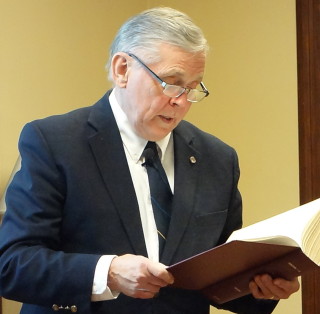
===============================================
Interethnic Relations in the Great War;
Demystification of the Oppressed French-Canadian Soldier's Myth
- Speaker: Céleste Lalime
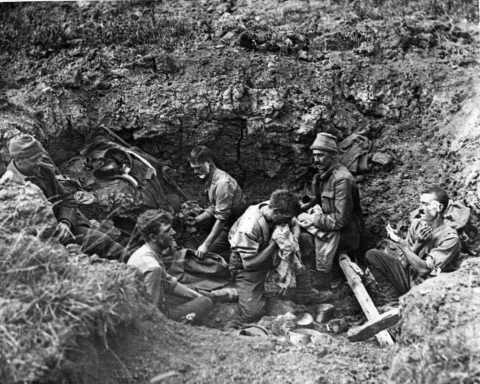
- When: Thursday, October 18, 2018, 7:30 p.m. to 9 p.m.
- Where: Centennial Hall,
- 288 Beaconsfield Blvd, Beaconsfield, H9W 4A4
Lecture in English, followed by a bilingual question period
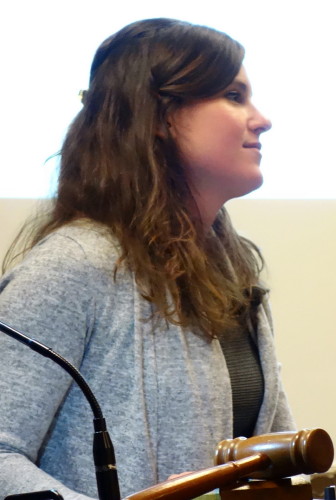
The First World War inevitably brings back painful memories in the province of Quebec. Quebeckers have a negative recollection of the war, viewing themselves as victims. Events related to the Great War such as the conscription crisis, the Easter riots and the inhospitality expressed by the Canadian Forces towards French Canadians are emotionally-charged memories that have nurtured this conception. Integrated in both the historiography and popular beliefs, the idea of the oppressed French Canadian will be questioned through this lecture. This presentation aims at re-examining this idea by surveying contemporary sources: the Anglophone press and testimonies from soldiers. Its objective is to reassess the attitude and perception of Canadian Anglophones towards French Canadians, and more broadly the nature of interethnic relationships in the army during the First World War.
Céleste Lalime is a historian, speaker and history teacher. She received the highest distinction for her master’s thesis in history at Université de Montréal. She has worked on First World War battlefields at Vimy and Beaumont-Hamel as a guide-interpreter and research agent in history. She participates in the elaboration of a work about the Mont-Royal Fusiliers led by the National Defense, teaches history at College Bourget and collaborates to international and interuniversity conferences and seminars about World War 1.
================================================
Sir Wilfrid Laurier: The Man, the Collectables
- Speaker: Jean-Pierre Dion, Ph. D.
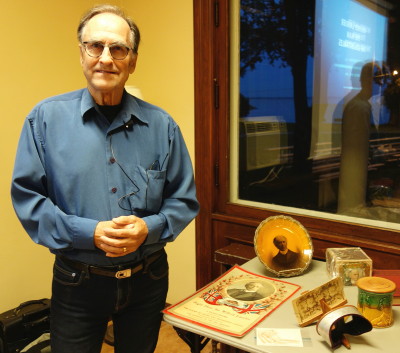
- When: Thursday, September 20, 2018, 7:30 p.m. to 9 p.m.
- Where: Centennial Hall,
- 288 Beaconsfield Blvd, Beaconsfield, H9W 4A4
Lecture in English, followed by a bilingual question period.
 Wilfrid Laurier (1841-1919) has been leader of the Liberal Party of Canada for over 30 years and Prime Minister of Canada for 15 consecutive years (1896-1911). Very popular during his lifetime as well as after his death, Laurier remains one of the most admired Canadian statesmen. Not surprisingly, there are more memorabilia (collectables) related to Laurier than to the other Prime Ministers all together. This lecture will describe some Laurier collectables: painting, photographs, furniture, ceramic plates, glassware, tobacco items, books and so forth, connecting them to special events in the life of Laurier.
Wilfrid Laurier (1841-1919) has been leader of the Liberal Party of Canada for over 30 years and Prime Minister of Canada for 15 consecutive years (1896-1911). Very popular during his lifetime as well as after his death, Laurier remains one of the most admired Canadian statesmen. Not surprisingly, there are more memorabilia (collectables) related to Laurier than to the other Prime Ministers all together. This lecture will describe some Laurier collectables: painting, photographs, furniture, ceramic plates, glassware, tobacco items, books and so forth, connecting them to special events in the life of Laurier.

Jean-Pierre Dion, Ph.D., is a retired professor at l'Université du Québec à Montréal. For nearly fifty years, he has been collecting, with his wife Jacqueline Beaudry Dion, the Canadian heritage of the 19th and 20th centuries, including ancient books, ceramics and glass, subjects on which the couple has made many Conferences and publications. A few days ago, the couple also launched a tenth book: Peinture sur porcelaine dans les institutions religieuses au Québec, 1890-1955. Over the years various mementos by Wilfrid Laurier have accumulated. Our speaker today presents them to us by situating them in their context.
================================================
© 2011 - 2025 Société Historique Beaurepaire-Beaconsfield



